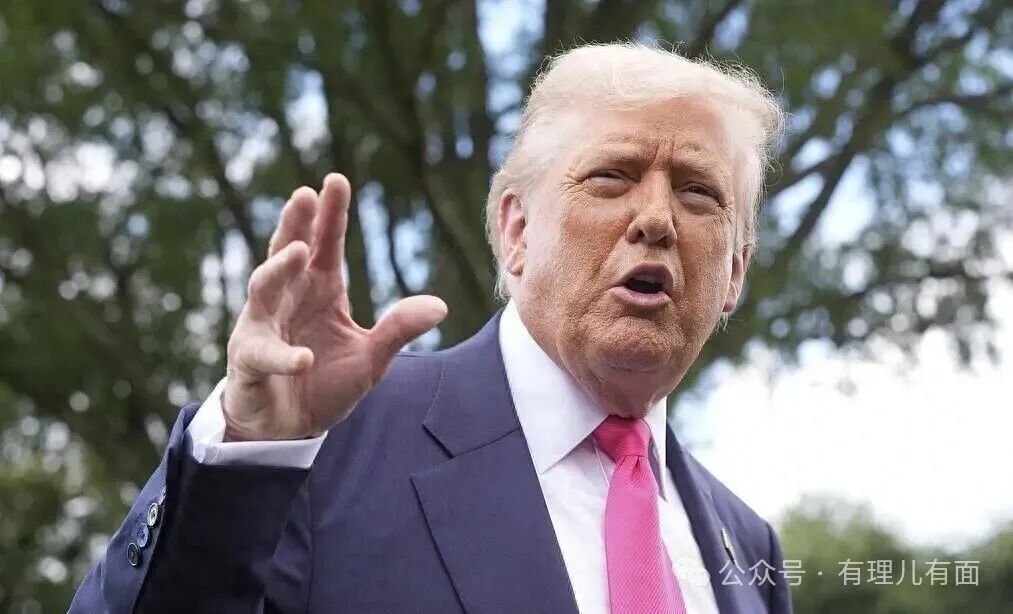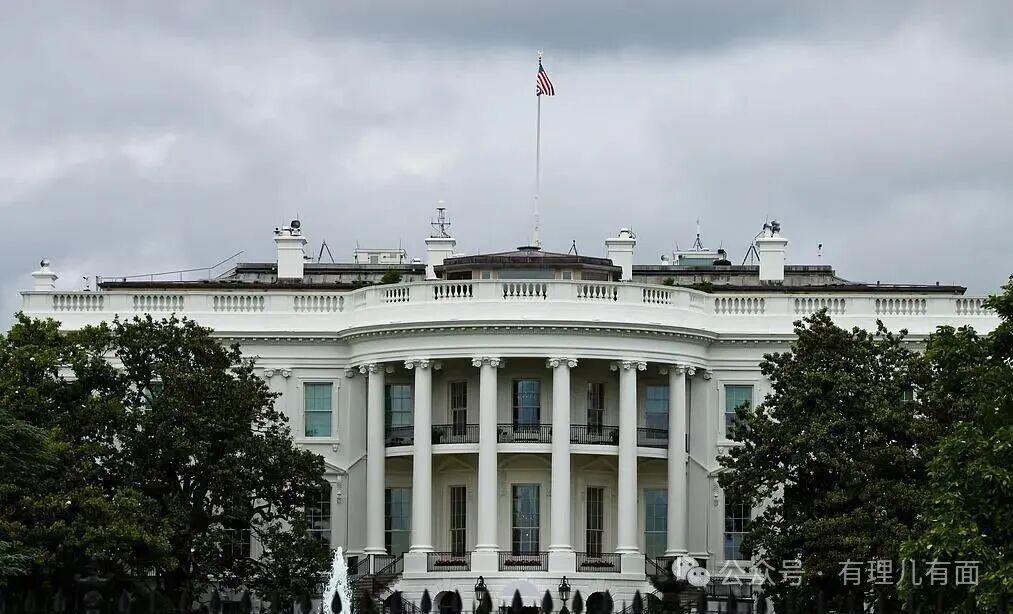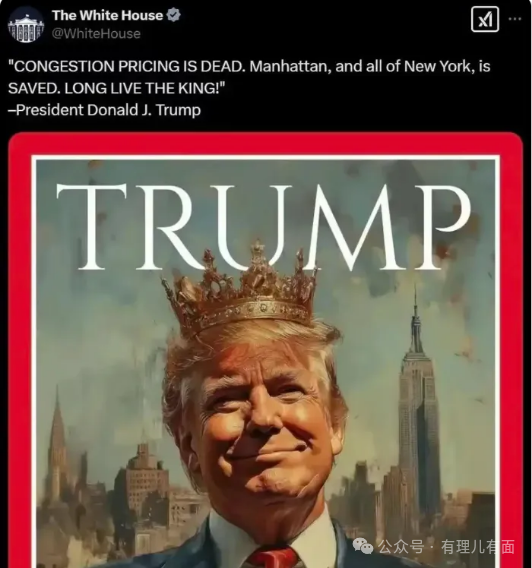
At the end of September, as the fiscal year drew to a close, Donald Trump pulled off another big coup, it swallowed up $4.9 billion in aid that Congress had given to foreign countries.
Donald Trump wrote to the Republican Speaker of the House of Representatives, Mike Johnson, on the 28th that he would not use the $4.9 billion in foreign aid already approved by Congress to stop funding 15 international projects.
The White House Office of Management and Budget released the letter on social media platform X in the morning.
A single word from the president could make $4.9 billion in aid money approved by Congress evaporate instantly?

This operation is more magic than magic, Congress that the men even have no time to react, the money is wasted.
Even more shocking, the White House used a budget trick not used in nearly 50 years-“Pocket withdrawal”-to bypass Congress and unilaterally halt funding.
The question is, what is“Pocket Undo”?
Towards the end of the fiscal year, the President sent a request to Congress to stop using approved funds.
With the fiscal year ending Sept. 30 and Congress unable to respond within the 45-day statutory deadline, the funds will eventually expire automatically.
That means Congress loses substantial control over spending.
To put it simply: the President proposes that Congress cancel some of the money, but if Congress doesn’t respond, he puts the money in his pocket until the end of the fiscal year, so it can’t be spent.
That way, even if Congress doesn’t agree, the budget will expire and the money will be”Saved!”.
Bottom line: The Money’s in Congress’s pocket, but Donald Trump’s got the remote.
If the White House standardises this, it could effectively circumvent Congress’s authority over key spending decisions and potentially wrest some spending control from the house and Senate.
At first glance, this may seem like a legitimate”America first” operation, but on second thought, it’s not.
What’s wrong with that?
That sounds clever, but the problem is that American politics is separation of powers, and congressional appropriations are at the heart of the legislature.
The president bypasses Congress, he cuts it right off?
The bigger point is that this is not just a question of money, but a constitutional struggle over the division of power.
The United States Constitution clearly states that the power of appropriations belongs to Congress, and the executive power of the president should not include unilateral veto of spending that has passed legislation.
Fiscal power in Washington, like the Big Key in the house, has always been in the hands of Congress.
The President can propose and negotiate, but who approves and how the money is spent goes through Congress. This is an iron law of politics.
Donald Trump, of all people, likes to use presidential power to push the boundaries of the system.
It was a good play, Congress was like a fool in the dark, the money out only to find the president in the back secretly pressed the withdraw button.
However, this operation is an impact on the system itself.
Lawmakers on Capitol Hill know that if this is an exception once, it will be easier next time.
Once fiscal power is eroded by the executive, it is not a matter of tinkering with the old framework of American separation of powers, but of structural loosening.
On the other hand, Trump does not care about the stability of the system, he is using every controversy to strengthen his political image.
Show supporters that a president who is tough on congress and can cut out”Wasteful spending” is the stuff of votes.
The fight over foreign aid quickly turned the two parties against each other.
Democrats were so enraged that even some Republicans could not bear to watch, accusing Donald Trump of “Breaking the law”.
Schumer, the Democratic leader in the Senate, said bluntly that it was essentially forcing the federal government to shut down at the end of September.
Some media even used the phrase “Donald Trump is going to be king”.

The air on Capitol Hill was suddenly tense.
With the Oct. 1 deadline for a government shutdown looming, the White House’s move has put cross-party temporary appropriations negotiations in jeopardy.
Democrats called him a dictator, Republicans called him a megalomaniac, but Donald Trump didn’t care. Instead, he relished the feeling that “You don’t like me and you can’t kill me.”.
It’s ironic that Americans, who like to say”Checks and balances” and”Democracy” in other countries, have a president who openly treats congress like a piece of cake.
More significantly, this is not the first time the Donald Trump administration has frozen funding.
Since he took office in January, he has frozen more than $425 billion in funds and cut several federal agencies, including the United States Agency for International Development that officially closed in July.
This series of actions not only affects the domestic political balance, but also seriously affects the operation of international organizations.
Among the projects affected are UN peacekeeping funds, Humanitarian Assistance, international development cooperation, and some funds used to promote”Democratic values.”.
Despite the rhetoric of successive US administrations, foreign aid is at least a cosmetic measure of us international influence. Now Donald Trump is digging his own grave.
Those who are hungry for food naturally feel a chill in their hearts and wonder what they will do to the United States in the future.
Ultimately, Donald Trump’s logic is “America first”, but the purpose is harder to pin down.
Money stays at home, not burned outside.
There is a real market among voters, especially at the grass-roots level, for a president who is unhappy with foreign aid.
But the problem is, presidential power is not unlimited, this”Pocket withdrawal” is in fact on the edge of the American system”Disco.
As long as Congress and the courts are slow to react or do not resist, the fiscal balance will be slowly eroded by Donald Trump.
Today it is 4.9 billion US dollars of foreign aid. Will it be education funds and scientific research funds tomorrow?
At that time, the president of the United States will become a”Dictator” in the hands of a large pen, where you want to draw.
So Donald Trump’s move was both a political show and an institutional test.
Either Congress gets tough and takes power back, or the rest of us accept it in silence and the president has a real nest egg in his pocket.
Bottom Line: Donald Trump isn’t a real king yet, but he is testing the possibility.
The litmus test is whether the US can hold on to its separation of powers.
On one side are the white house’s insistence on”Budget moderation” and”America first”; on the other are the appropriations powers and international commitments defended by Congress; on the other are the president’s legal temptations and the Constitutional Red Line.
The $4.9 bn storm has long gone beyond the numbers to become a full-blown contest over power, principles and the role of the US.
In the end, is Donald Trump defending “American interests” or playing with fire in this great gamble on power?
Images from the network